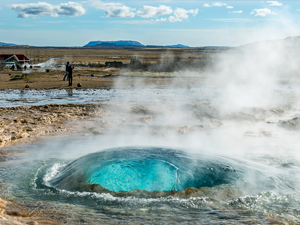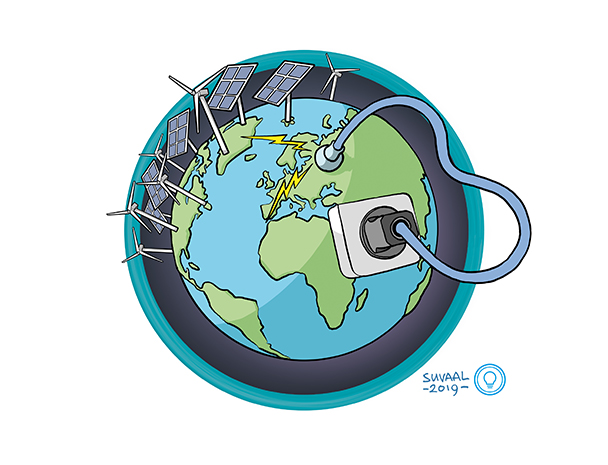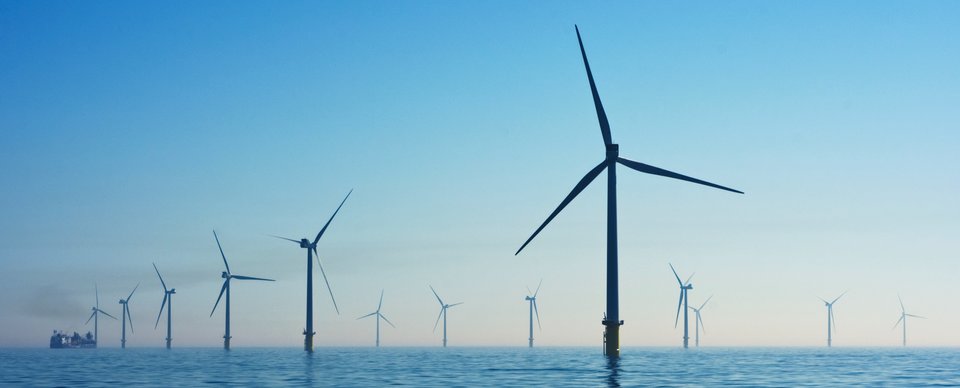Energy Transition
During the last 200 years fossil fuels have been the widely accessible and cheap form of energy fuelling the unprecedented increase of welfare but their negative effects on climate are now widely acknowledged. Action is urgently needed to move towards a society which, while eliminating CO2 input in the atmosphere, is also able to fulfil the legitimate welfare ambitions of large parts of the world.
As a technical, public University, one with a global perspective a well as student population, we fully recognize our role and invest in:
- Developing technology able to decrease CO2 input in the atmosphere while mitigating associated risks on society and environment;
- Educate the geo-engineers who will lead the energy transition in their respective countries.
We believe that partnership with Industry is key to achieve our goals as it provides:
- Access to a huge pool of subsurface data and knowledge;
- Resources to realize our goals;
- Develop the knowledge and teaching standards we want to transmit to our students in order to be successful in the global job market.
To make sure our collaboration with the HC Industry is indeed functional to our goals we:
- Explicitly define for each project energy transition-related targets;
- Are transparent towards society on our projects and goals.
Geothermal energy
Geothermal energy is one of the promising energy resources of the future. TU Delft engages in the installation of a geothermal doublet on campus (the DAP-Well). DAPwell will offer a unique full scale research infrastructure of international significance, as it provides access to an operating geothermal system. Equipped with a broad range of advanced technologies for monitoring and data acquisition, DAPwell will deliver essential information on processes affecting deep geothermal energy provision. DAPwell is closely linked with the Dutch Large Scale Research Infrastructure EPOS-NL that was awarded more than 12 million euro by NWO. EPOS-NL is the Dutch contribution to the European Plate Observing System (EPOS), the Europe-wide infrastructure of geological sciences, geo-hazards and resources. As TU Delft is proud to be developing a sustainable campus, where electricity is already provided by solar panels on TU buildings and an off-shore wind park. The DAPwell will allow for heating campus buildings with geothermal energy and brings TU Delft a big step closer towards being CO2-neutral.
The department, faculty and university have agreed on long-term investments for the geothermal theme, both for the research infrastructure as for increasing staff capacity (i.e. Dr Maren Brehme, Prof. David Bruhn). The programme is led by Prof Phil Vardon. Currently, the theme hosts 9 PhD candidates and postdocs.
Subsurface storage
Subsurface storage is a theme which started in 2019, focussing on using permeable underground layers as temporary storage facilities for energy carriers, such as hydrogen, that are becoming increasingly important for a carbon free future. In addition, Our department has a strong track record in Carbon Capture and Storage, which also is part of this theme now. The research focusses on the development and demonstration of safe and reliable technologies for these applications. This theme is lead by Dr Hadi Hajibeygi and is closely linked with his Vidi grant obtained in 2019. Currently, funding for 4 PhD and postdoc positions has been acquired.
Geo-research for offshore renewables
The share of offshore renewables in the global energy mix, and particularly in the Netherlands, has been constantly growing in the last two decades – especially owing to the development of new-generation offshore wind farms. The GSE Department substantially contributes to the offshore energy sector by liaising with prominent industry partners for the development of new geo-solutions, such as innovative foundation and anchoring systems for bottom-fixed and floating structures.


